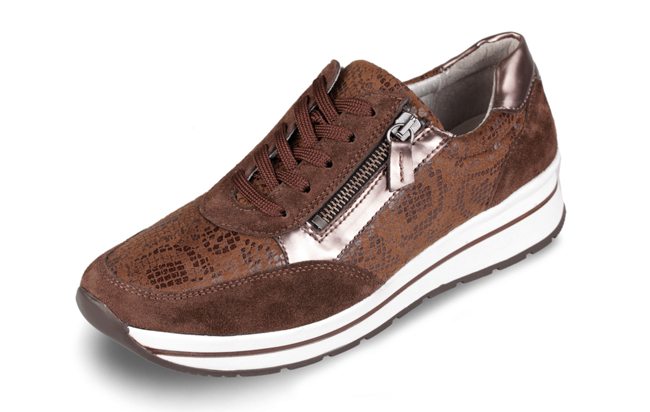
In the realm of footwear, Spain boasts a legacy that stretches back centuries, renowned for its craftsmanship, quality materials, and timeless designs. The tag “Made in Spain” carries a weight that extends far beyond national borders, signaling excellence and tradition in shoe manufacturing. But how does this label affect the popularity of Spanish shoe factories?
Cultural Heritage and Craftsmanship: Spanish shoe factories are deeply rooted in the country’s rich cultural heritage. From the cobblestone streets of old towns to the bustling markets of modern cities, the artistry and dedication of Spanish shoemakers shine through. Each pair of shoes carries with it centuries of tradition, passed down through generations of skilled artisans. The “Made in Spain” label serves as a testament to this legacy, elevating the popularity of Spanish shoe factories among consumers who value authenticity and craftsmanship.
Quality and Attention to Detail: When it comes to footwear, quality is paramount. Spanish shoe factories are renowned for their commitment to using the finest materials and employing meticulous craftsmanship at every stage of production. Whether it’s hand-stitched leather or precision-engineered soles, each component is carefully chosen and expertly crafted to ensure durability, comfort, and style. The reputation for superior quality associated with the “Made in Spain” label enhances the popularity of Spanish shoe factories both domestically and internationally.
Global Recognition and Prestige: In an increasingly interconnected world, the significance of country-of-origin labels cannot be overstated. The “Made in Spain” tag carries with it a sense of prestige and authenticity that resonates with consumers worldwide. Spanish shoe factories leverage this reputation to carve out a niche in the global market, appealing to discerning buyers who seek out products that reflect tradition, quality, and style. As a result, the popularity of Spanish shoe factories continues to soar, bolstered by the enduring allure of the “Made in Spain” label.
Economic Impact and Sustainability: Beyond the realm of fashion, the success of Spanish shoe factories has far-reaching economic implications. These factories provide employment opportunities in local communities, supporting livelihoods and fostering economic growth. Moreover, by prioritizing sustainability and ethical practices, Spanish shoe factories contribute to the preservation of natural resources and the well-being of future generations. The popularity of Spanish shoe factories is thus intertwined with a commitment to responsible manufacturing practices, further enhancing their appeal to conscientious consumers.
In conclusion, the “Made in Spain” label serves as a powerful symbol of excellence and tradition in the world of footwear. Spanish shoe factories leverage this reputation to not only enhance their popularity but also to uphold a legacy of craftsmanship, quality, and sustainability. As consumer preferences continue to evolve, one thing remains clear: the allure of Spanish-made shoes shows no signs of waning.
How “Made in Spain” Affects the Popularity of Spanish Shoe Factories
The “Made in Spain” label carries a certain weight in the shoe industry, impacting the popularity of Spanish shoe factories in both positive and negative ways:
Positive Impacts:
- Reputation for Quality: Spain boasts a long tradition of skilled craftsmanship in shoemaking. This heritage has led to a global association of Spanish shoes with high quality, durability, and meticulous attention to detail.
- Unique Design: Spanish footwear often features distinct design elements, drawing inspiration from local trends and cultural influences. This unique aesthetic sets them apart from mass-produced shoes and attracts fashion-conscious consumers.
- Luxury Image: Many Spanish shoe factories cater to the luxury market, using premium materials and employing time-honored techniques. This association with luxury further enhances the prestige of “Made in Spain” shoes.
Negative Impacts:
- Higher Costs: The focus on quality materials and craftsmanship often leads to higher production costs compared to cheaper, mass-produced shoes. This can make Spanish shoes less accessible to budget-conscious consumers.
- Competition: The global shoe market is highly competitive, with strong players from countries offering lower production costs. This can make it challenging for Spanish factories to maintain market share purely on the “Made in Spain” label.
- Shifting Consumer Trends: Fast fashion trends and the increasing demand for affordability can sometimes overshadow the appreciation for traditional craftsmanship. Spanish factories need to adapt and innovate to stay relevant to evolving consumer preferences.
Overall:
The “Made in Spain” label remains a significant advantage for Spanish shoe factories. However, to maintain and grow their popularity, they must:
- Emphasize the heritage and quality: Consumers seeking well-made, unique shoes will continue to value the “Made in Spain” mark.
- Embrace innovation: Spanish factories should incorporate modern design elements and production techniques to stay competitive.
- Target specific markets: Focusing on specific consumer segments, such as luxury fashion or those seeking sustainable, ethically produced footwear, can be a successful strategy.
By capitalizing on their strengths while adapting to contemporary trends, Spanish shoe factories can ensure the continued popularity of the “Made in Spain” label in the global market.

